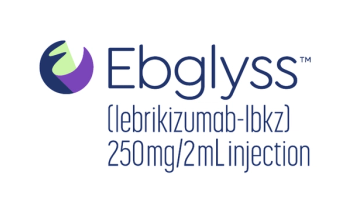
Value-based formularies aim to increase access
A value-based formulary takes into account individual illnesses and varies financial incentives determined by how important a medication is to a patient.
A value-based formulary takes into account individual illnesses and varies financial incentives determined by how important a medication is to a patient," says Troyen Brennan, MD, chief medical officer for Aetna based in Hartford, Conn.
Health Net's definition of a value-based formulary, according to Scott Wert, vice president, trade relations, Health Net Pharmaceutical Services in Rancho Cordova, Calif., is similar to Dr. Brennan's: a value-based formulary places drugs on tiers based on effectiveness as well as price-not just price alone.
With all the talk about compliance and accessibility to appropriate drugs, a value-based formulary just might be the solution for plan sponsors. Pitney Bowes, known for its postage meters, is one of the pioneers. It put all medications for diabetes, asthma and hypertension on the first tier five years ago and has realized considerable reductions in annual drug spend.
ACCESSIBLE CHRONIC DISEASE DRUGS
Health Net of Arizona, a business unit of Health Net, introduced a four-tiered formulary in 2003, in which tier one and two contain generics, and tier three and four preferred and non-preferred brands.
"We have moved branded drugs for chronic conditions, such as diabetes and asthma, to the second tier to encourage compliance and a quicker payoff on the medical side," says Wert. In addition, the formulary automatically places branded drugs for HIV and cancer on the second tier to increase accessibility and compliance.
Aetna is currently identifying conditions where medication has a large impact on outcomes, such as the use of beta blockers after a heart attack, to determine how lower copayments may influence compliance. It will waive copayments for four of the five most common medications for treating heart attack patients-beta blockers, statins, ACE inhibitors, angiotensin II receptor blockers (ARBs) and aspirin. Dr. Brennan does caution, however, that decisions on financial incentives need to be individualized and rely heavily on information systems.
Lonny Reisman, MD, CEO and founder of ActiveHealth Management in New York City, a health data technology unit of Aetna that offers clinical decision support tools and disease management, culls millions of patient records and claims to find high-risk patients who could benefit from lower copayments and other incentives. If a drug is not crucial to treating a particular condition, such as the use of a beta blocker to prevent stage fright versus administration after a heart attack, for example, the patient is likely to pay more.
"If a drug is needed, a health plan or plan sponsor should not set up any financial barriers to dissuade anyone from accessing a medication," Dr. Reisman says. At this point, he says, it is important to manipulate plan design to meet the specific needs of members.
ActiveHealth has developed its own value-based formulary, a customized drug list that takes a member's personal profile and evidence-based sources into consideration. The program enables benefit designs and copayment structures that provide those individual members, who derive the most clinical benefit from specific drugs, with the most financial incentive to use those drugs.
NO GENERALIZATIONS
Timothy Heady, CEO of UnitedHealth Pharmaceutical Solutions, a division of UnitedHealthcare in Minneapolis, says that a value-based formulary is consistent with the way the health plan manages its health spend.
"For example, generics are usually the best deal as far as costs go, but if a generic costs more than a brand, it is moved to the second tier," he says. "The process starts with understanding the evidence and cost associated with a disease, the role of the drug and whether or not compliance and persistency are affected by cost. We consider all of this information to make drugs more affordable and easier to access."
Newsletter
Get the latest industry news, event updates, and more from Managed healthcare Executive.

























